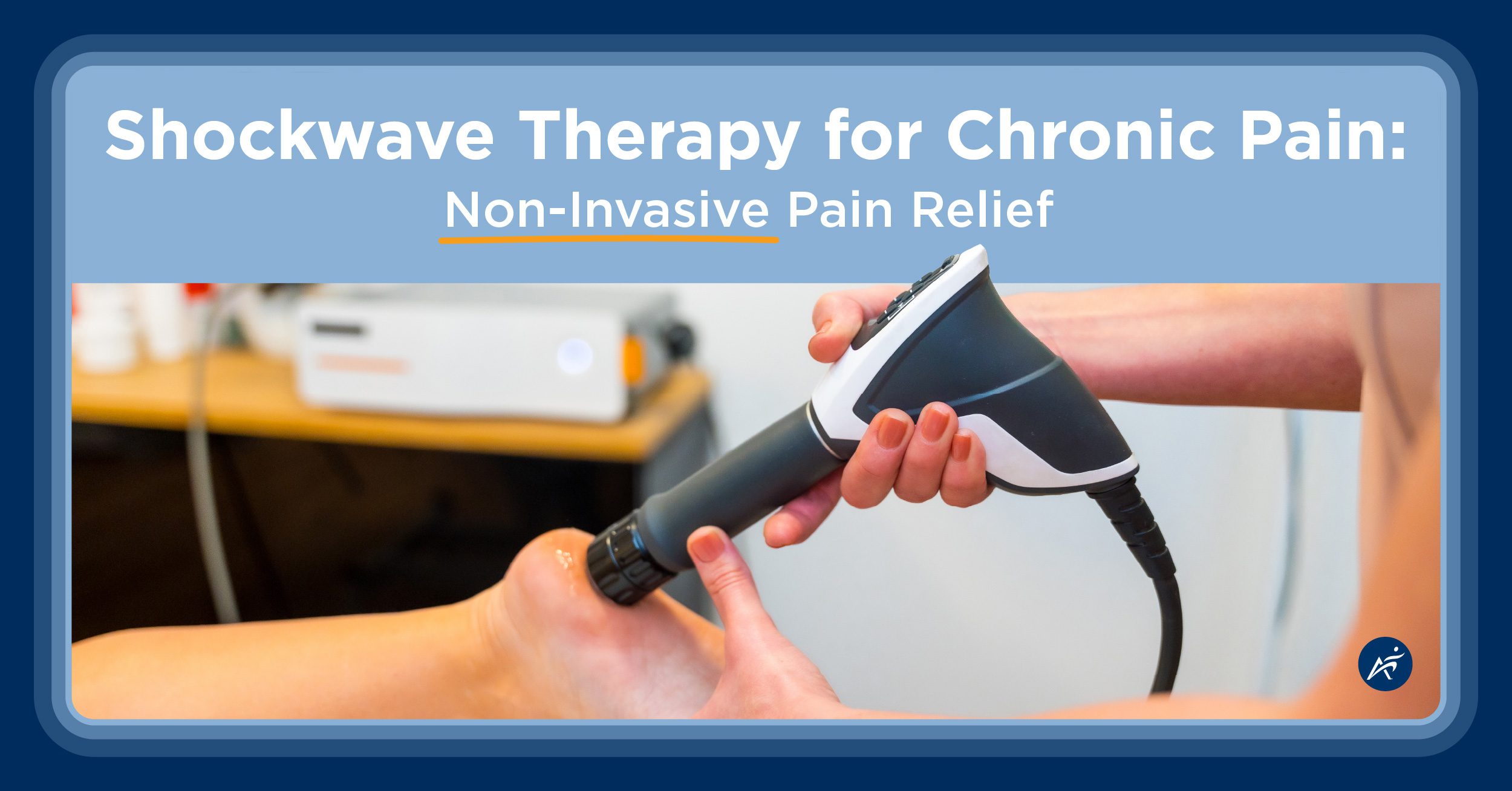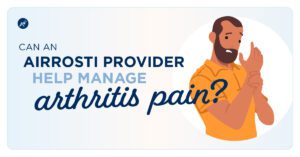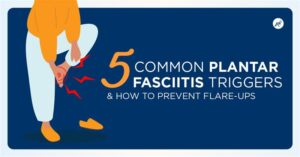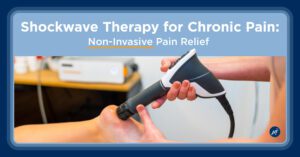When you’re dealing with chronic pain or a lingering injury, the last thing you want is a treatment plan that’s invasive, time-consuming, or reliant on medication. Extracorporeal shockwave therapy (ESWT) is an advanced, non-invasive option that offers lasting relief by stimulating your body’s natural healing processes without surgery, needles, or extended downtime.
This innovative approach is gaining popularity among patients and providers alike for its ability to target the root cause of pain and promote recovery in hard-to-treat areas. Whether you’re struggling with plantar fasciitis, tendonitis, or other musculoskeletal issues, shockwave therapy may offer a faster, safer path to feeling better and moving with confidence.
What is Shockwave Therapy?
Originally developed for breaking up kidney stones, extracorporeal shockwave therapy (ESWT) is now widely used to treat musculoskeletal conditions like tendonitis, tennis elbow, and joint pain. It works by delivering targeted sound waves to the injured area, stimulating blood flow, reducing inflammation, and jumpstarting tissue repair without surgery, needles, or downtime.
Using the convenient and non-invasive means of acoustic sounds, ESWT generates radial acoustic pressure waves at the skin surface that spread outward. Unlike some techniques, ESWT partners with the body to initiate its own healing process in muscles, ligaments, tendons, and bones.
How Does Shockwave Therapy Relieve Chronic Pain?
The word “shock” may sound a little scary. Instead of an electrical shock, this therapy delivers results by using high-frequency sound waves to stimulate affected areas of the body. After conducting an initial assessment, your Provider will use a small handheld device that emits pulses of energy to affected areas through the skin. This technique triggers the body’s natural healing process by replicating vibrations produced by healthy cells.
Benefits of Shockwave Therapy for Chronic Pain and Injury Recovery:
- Increasing blood flow and oxygen supply around the injury site
- Triggering cell regeneration of bone and connective tissue
- Reducing pain by overstimulating nerve fibers at injury site
- Increasing collagen production to provide more structure and support to connective tissues
- Reducing inflammation by decreasing pro-inflammatory markers while promoting anti-inflammatory cytokines (proteins)
- Improving mobility by breaking down calcified and scar tissues, restoring elasticity and function
Beyond benefits to the internal body and its natural processes, shockwave therapy also provides a better patient experience with convenience and alternatives.
Shockwave Therapy Enhances the Patient Experience by Offering:
- A non-invasive treatment option, requiring no injections, needle therapy, or surgery
- An effective alternative to medicine
- A minimal time commitment of 20-minute treatment sessions
- Results in just a few treatments
Is Shockwave Therapy Right for You?
There are many reasons to choose this non-invasive, effective solution to minimize pain and quicken recovery. Shockwave therapy is ideal for candidates with chronic injuries or those who have been unresponsive to conventional therapeutic remedies. Shockwave therapy effectively manages pain and conditions in these areas:
- Shoulder (Shoulder Tendinopathy)
- Elbow (Golfer’s Elbow, Tennis Elbow)
- Wrist (Wrist Tenosynovitis)
- Plantar and heel (Plantar Fasciitis, Retrocalcaneal Bursitis, Morton’s Neuroma)
- Many other chronic conditions
Shockwave therapy is generally well-tolerated with minimal risk of side effects; however, some individuals may experience mild discomfort during or after treatment, such as redness, swelling, bruising, or a slight ache in the treated area. These effects are typically temporary and should subside within a few hours to a day after the session.
If you have any concerns or pre-existing conditions (such as certain skin disorders or vascular issues), it’s important to discuss them with your Provider before starting treatment. Individuals should avoid shockwave therapy if they:
- Have cancer, especially at the treatment site
- Have a pacemaker
- Have a bleeding disorder
- Take anticoagulant medication
If you’d like to learn more about shockwave therapy and understand if it might be right for you, feel free to call us at (800) 404-6050 for more information!









